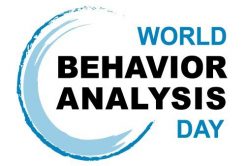Behavior analysis is a scientific discipline whose subject matter is individual behavior interacting with environmental events. It has theoretical, experimental, and applied branches; distinct research methods, scientific journals, textbooks, scholarly and professional organizations, and university training programs; and professional and paraprofessional practitioner standards and credentials. The applied branch of the discipline (applied behavior analysis; ABA) involves using scientific principles and procedures discovered through basic and applied research to improve socially significant behavior to a meaningful degree. Thousands of studies published in peer-reviewed scientific journals have demonstrated the efficacy of many ABA procedures – singly and in various combinations — for building skills and reducing problem behaviors in many clinical and non-clinical populations in a wide range of settings.
The practice of behavior analysis is a profession and requires specialized training. For regulatory purposes, that practice is defined as the design, implementation, and evaluation of instructional and environmental modifications by a behavior analyst to produce socially significant improvements in human behavior. It includes the empirical identification of functional relations between behavior and environmental factors, known as functional assessment and analysis. Applied behavior analysis interventions are based on scientific research and the direct observation and measurement of behavior and environment. They utilize contextual factors, establishing operations, antecedent stimuli, positive reinforcement, and other consequences to help people develop new behaviors, increase or decrease existing behaviors, and emit behaviors under specific environmental conditions.
Areas in which ABA interventions have proved effective include general and special education (all levels); autism spectrum disorders, intellectual and developmental disabilities, attention deficit disorder, movement disorders, brain injuries and diseases, behavior disorders, substance abuse disorders, dementia, and feeding disorders; home and workplace safety; vehicular and pedestrian safety; organizational behavior management; animal welfare and training; conservation; parenting; child welfare; sports; and health and fitness. ABA services are delivered in a variety of settings, including private and public clinics, private homes, hospitals, schools, nursing homes, group homes, universities, and workplaces.
Behavior Analysis is a Growing Field
| The Behavior Analyst Certification Board (BACB; www.bacb.com) is an independent nonprofit organization that was founded in 1998 to meet the needs of consumers, governments, employers, and funders for credentials verifying that practitioners of ABA have met uniform, objective training and examination standards. As of October 2, 2020, the BACB had certified 42,272 professional practitioners with advanced degrees and training, 4,579 assistant practitioners with bachelor’s degrees, and 82,978 paraprofessionals.
A labor market study conducted by Burning Glass in 2019 documented that the demand for BACB-certified practitioners of ABA increased exponentially between 2010 and 2018. Since just 2009, 31 states have adopted laws to license behavior analysts. Certain private health insurance plans are mandated by laws or regulatory bulletins in all 50 U.S. states to cover ABA services for people with autism spectrum disorders. Medicaid programs in most states also cover ABA services to at least some extent. In 2019 the American Medical Association (AMA) CPT® Editorial Panel approved 8 CPT® (health insurance billing) codes for ABA services as Category I. That signifies that the Panel deems those services clinically effective according to the AMA’s evidence standards and widely accepted in the medical community. |
Why the week of March 20th?
The date March 20 was selected for World Behavior Analysis Day because it is the birthdate of B.F. Skinner, the founder of contemporary behavior analysis. Happy Birthday, B.F. Skinner! To learn more about B.F Skinner, click here! There are other holidays that day, so behavior analysts celebrate the week prior culminating on March 20, to suit their personal preferences.
The Many Uses of Behavior Analysis
Read more about the many uses of behavior analysis: https://www.bacb.com/about-behavior-analysis/
